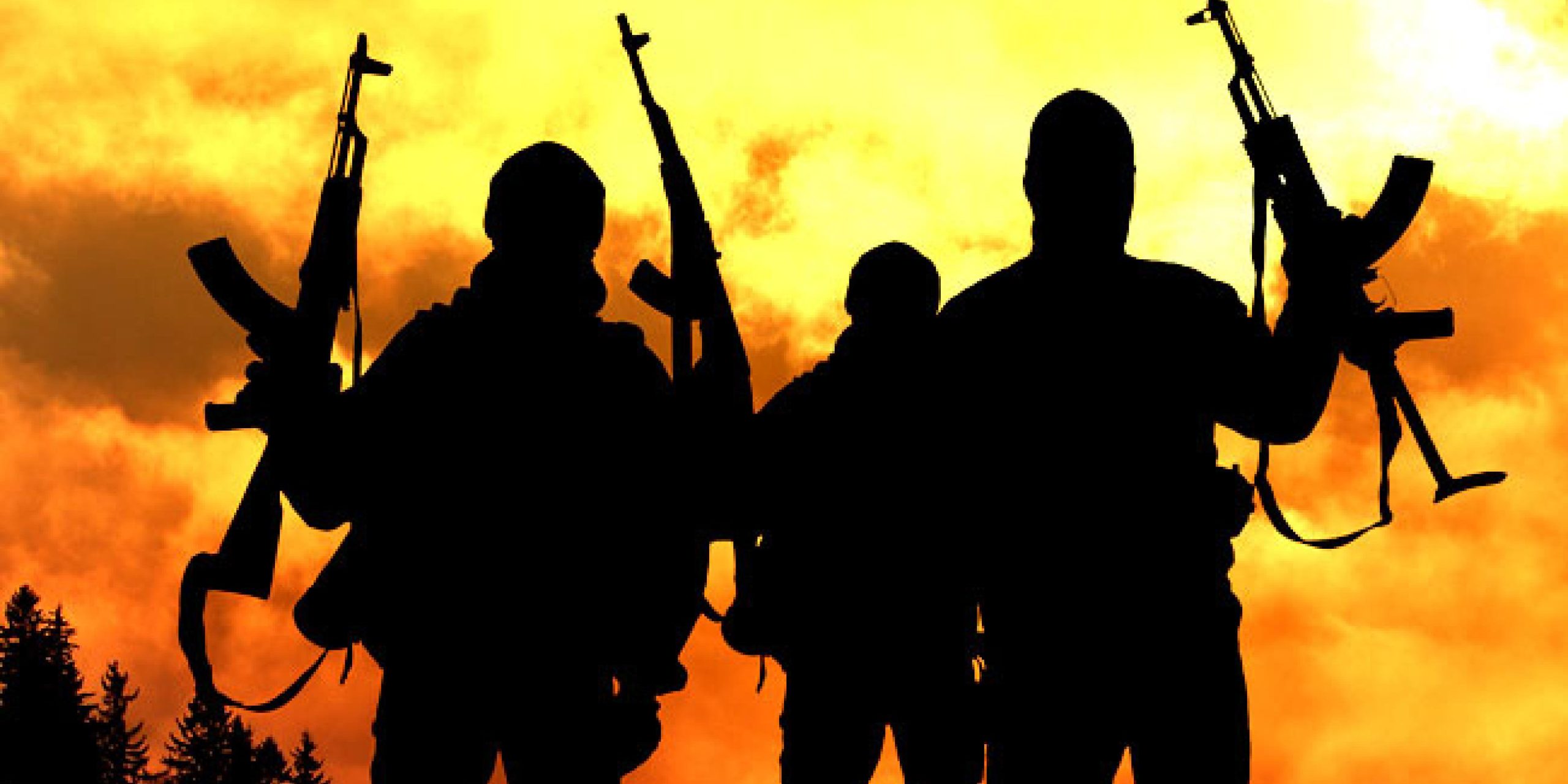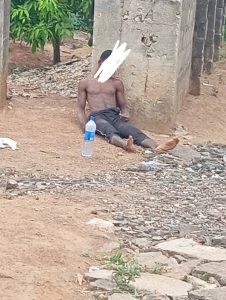Gunmen Ambush Two Buses, Abduct 14 Passengers Along Makurdi–Adoka Road In Benue
It was an ordinary Thursday morning along the Makurdi–Naka–Adoka highway in Benue State—a key transport route linking the state capital to parts of Kogi and the North Central region. But by midday, fear and panic had rippled through communities and commuter parks following yet another violent assault on civilians by gunmen suspected to be terrorists.
Between 10 and 11 a.m., two commercial vehicles—a Toyota Picnic and a Volkswagen Sharon bus—were ambushed just outside Naka town, near a community known as Okpa, on the border of Gwer West Local Government Area and Adoka in Otukpo. At least 14 passengers were forcibly taken into the bush, sparking outrage, fear, and renewed debate about the crumbling security architecture of Nigeria’s Middle Belt.
YOU MAY READ
I Can’t Guarantee Safety of Anyone Visiting Benue Without My Knowledge” – Governor Alia Warns Amid Rising Political Tension
A commercial driver who witnessed the attack and requested anonymity for fear of reprisal recounted the harrowing moments leading to the abduction. According to him, the assailants emerged from a thick patch of forest, heavily armed and organized, and quickly blocked the road with logs and abandoned motorcycles.
“They were not in a hurry. They knew exactly what they were doing. They positioned themselves with rifles, and before anyone could react, they were ordering people out of the vehicles at gunpoint,” he told PUNCH.
The victims, numbering at least 14 from the two vehicles, were marched into the forest under the threat of death. Others—an elderly woman, a breastfeeding mother, children, and one of the drivers—were reportedly left behind, suggesting the attack was premeditated and selective.
Yakubu Onu, Secretary of the National Union of Road Transport Workers (NURTW), High-Level Unit in Makurdi, confirmed the incident in a phone interview. He explained that both vehicles were affiliated with the union’s park in Makurdi.
YOU MAY READ
PURPORTED REMOVAL OF CHIEF JUDGE OF BENUE STATE: A BRAZEN ASSAULT ON THE CONSTITUTION
“The first vehicle was en route to Lokoja with nine passengers. The gunmen took six of them. The second was coming from Ankpa to Makurdi; eight passengers were taken. The drivers later reached out to us,” Onu said, his voice laden with concern.
Onu also noted that while the drivers were instructed by police in Naka to continue their journey after making a report, communication with one of them had since been lost, raising questions about their safety.
“We are deeply disturbed by this incident. We are in contact with the authorities and families of the victims. Our hope is that security forces act swiftly,” he added.
His Royal Highness, Chief Daniel Abomtse, the traditional ruler of Naka, confirmed the abductions and expressed deep frustration with the growing wave of insecurity. He described the area of the attack—Okpa near Adoka—as an “ungoverned space” overrun by criminal elements.
“There’s a portion of land in that axis that security personnel do not enter. It’s like a lawless zone. These people exploit that weakness to carry out evil. It has to stop,” he said.
The monarch disclosed that community leaders had raised repeated alarms about the threats along the Makurdi–Adoka corridor, but little had been done in terms of long-term security deployment.
This is not the first time the state is reeling from coordinated attacks on civilians. Just weeks ago, on April 8, 2025, SaharaReporters documented an incident in Otukpo Local Government Area, where gunmen killed two and abducted 13 passengers near the Otukpo Burnt Bricks axis. That attack targeted a vehicle belonging to Benue Links Nigeria Limited, a state-owned transport company.
Confirming that development, the company’s Information Officer, Johnson Daniel, stated that efforts were underway in collaboration with local and federal security agencies to secure the victims’ release. However, no tangible update has since emerged.
YOU MAY READ
Deadly Silence in Ukum: Villagers Allege Security Agencies Ignored Warnings Ahead of Massacre
A growing number of residents believe that these attacks are not random but follow a chilling pattern of targeted ambushes on key roadways, particularly those near forests and isolated zones.
For commuters and drivers plying the Makurdi–Adoka road, the terrain has become one of survival, not convenience. Drivers now share information in real time about road conditions—not just potholes or checkpoints, but suspected ambush sites and unusual movements in the bushes.
Miriam Agbo, a nurse who narrowly missed boarding the Sharon bus involved in Thursday’s abduction, shared her relief and anguish.
“I was running late. I kept blaming myself for not getting there earlier. But when I heard what happened, I froze. It could have been me. Now, I am afraid to travel to visit my mother,” she said tearfully.
She described how travelers are now forced to go in convoys, avoid early morning or late-night trips, and in some cases, cancel journeys altogether.
As at press time, the Benue State Police Command has not issued an official statement on the abduction along Makurdi–Naka–Adoka road. Multiple calls and text messages to the state’s Police Public Relations Officer went unanswered.
YOU MAY READ
Fifteen Kidnapped Victims Regain Freedom After Five Days in Captivity in Enugu
This silence has further fueled public frustration, especially as reports of violent crimes in the state—ranging from herdsmen attacks in the countryside to highway kidnappings—have seen a disturbing uptick.
Security analysts believe the police and military are overstretched, with operational focus scattered across multiple conflict zones in the state, including Agatu, Guma, Ukum, Logo, and Katsina-Ala.
In Makurdi, scenes at the High-Level Motor Park were somber on Friday morning. Families of the missing passengers gathered in anxious clusters, clutching photographs and praying aloud. Some had travelled from as far as Gboko and Otukpo.
“We’ve not heard from our brother since yesterday. His phone was ringing until the afternoon. Now, it’s switched off,” said John Uji, whose younger brother was on the Sharon bus from Ankpa.
Other relatives spoke of contacting local vigilantes, hunters, and even traditional priests in the hope of receiving spiritual insight or divine intervention.
One woman knelt on the dusty park floor, crying uncontrollably and calling out her husband’s name, “Terna! Terna! Please come back to me!”
YOU MAY READ
North Central Nigeria: A Region of Soldiers, Yet a Land of Sorrows – A Call for Reflection and Spiritual Reckoning
Though security sources are cautious not to make premature conclusions, many suspect that the attackers may be part of an armed militia that has operated in the Middle Belt for years, with shifting identities—from herdsmen to bandits to ‘unknown gunmen.’
There is growing speculation that the forest zone near Okpa is part of a broader corridor used for transitory crime—bandits, drug traffickers, and arms dealers reportedly move through this axis, making it a hotspot for violence.
Some have floated the theory that the attackers are linked to cross-border groups migrating between Nasarawa, Kogi, and Benue, exploiting weak border surveillance and corrupt checkpoints.
What has also shocked residents is the silence from elected officials. At the time of this report, no statement had been made by the Benue State Governor, Rev. Fr. Hyacinth Alia, nor any member of the State House of Assembly representing the affected LGAs.
Civil society groups like the Middle Belt Peace Coalition have decried the lack of political will and coordination in addressing the insecurity that plagues the region.
“If 14 people can disappear in broad daylight and no one blinks, what does that say about us? This isn’t just a failure of intelligence; it’s a failure of governance,” said Barrister Simon Gberindyer, a Makurdi-based human rights advocate.
The NURTW has demanded an emergency security operation to comb the forests around Naka and Adoka. Similarly, local vigilante groups in Gwer West have volunteered to assist in any operation to locate and rescue the abducted passengers.
“We know the terrain better than anyone. Just give us support—logistics, weapons, and backing—and we’ll clean up those areas,” said a vigilante commander who declined to be named.
On the floor of the National Assembly, lawmakers from Benue and Kogi have been urged to raise urgent motions compelling federal intervention and military deployment.
Despite the growing fear and sense of abandonment, some community leaders insist that the battle is not lost. They are calling for better coordination between federal forces and local intelligence units, increased use of drones and surveillance technologies, and a community-based security architecture that places emphasis on prevention rather than just reaction.
“It is no longer enough to issue condolence messages or tweet condemnation,” said Chief Abomtse. “We need action. Our roads must be safe again.”
As night falls on Benue, the forests around Okpa remain dark and impenetrable. Somewhere within, 14 Nigerians await either freedom—or the unforgivable failure of their government.





